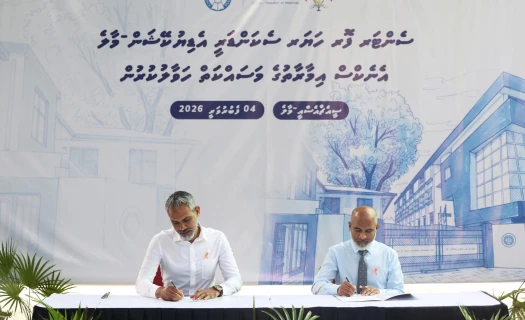Thu, 05 Feb 2026
|DHIVEHI
Cold and fever cases rise; public urged to take precautions
18 May 2025
|

Photo: PSM News
The rainy season often coincides with a noticeable rise in cases of cold and fever, as well as mosquito-borne illnesses. It is therefore essential to take preventive measures to safeguard personal and public health.
Understanding Transmission Risks Cold and fever are primarily transmitted from person to person through respiratory droplets released during coughing and sneezing. These illnesses can also spread through the shared use of personal items belonging to an infected individual. Vulnerable groups such as children, the elderly, and individuals with chronic health conditions are particularly susceptible to infection.
A well-functioning immune system plays a crucial role in preventing and recovering from illnesses. To support your immune defences, it is advisable to consume a balanced diet, stay well-hydrated, and ensure adequate rest.
Common symptoms:
- Fever
- Persistent cough
- Difficulty breathing
- General body aches
- Fatigue or exhaustion
If you experience any of the above symptoms, it is imperative to remain at home and seek medical advice promptly. Avoid attending public gatherings and, in the case of children, ensure they are kept out of school until fully recovered.
Preventive measures to minimise the spread of illness:
- Wash your hands frequently with soap and water
- Wear a mask in public spaces, especially if symptomatic
- Practise self-isolation when unwell
- Stay at home if you exhibit any signs of illness
Mosquito-Borne Diseases During the Monsoon The western monsoon season also brings an increased risk of mosquito-borne diseases such as dengue and chikungunya. In addition to cold and fever, these illnesses can present serious health complications. Preventive steps such as using mosquito repellent, eliminating standing water, and wearing protective clothing are strongly recommended.








